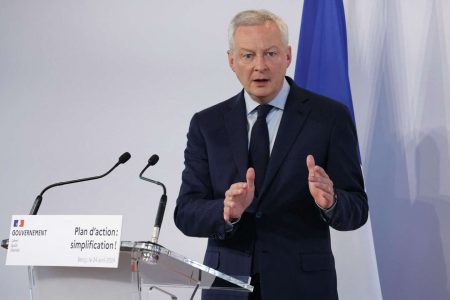The Greco report, released on April 10th, 2022, questions the effectiveness of measures taken by the French government to prevent corruption among high-ranking officials. The report, issued by the Group of States against Corruption (Greco) – an organism of the Council of Europe – had recommended eighteen measures in January 2022 to reduce the risk of corruption among public officials and those working within the executive branch. However, two years later, only two proposals were deemed to have been satisfactorily implemented, and these were minor points. The report criticized France for failing to comply adequately with the recommendations put forth.
Specifically, the Greco report highlighted the inadequacy of measures aimed at limiting the risk of corruption or conflicts of interest within the executive branch. Most of the proposed measures in this area had only been partially implemented at best. For example, requirements for high-ranking officials within the executive branch to publicly and regularly report their exchanges with lobbyists were not enforced, and there was no pre-appointment control by the High Authority for Transparency in Public Life (HATVP) for individuals being considered for advisory positions in ministries or the presidency. The Greco also recommended that the assets and interests declarations of the President be scrutinized upon taking office to prevent perceived or real conflicts of interest, but this recommendation was ignored.
In terms of law enforcement, the Greco acknowledged some positive developments underway but criticized the lack of a common global strategy. It lamented that its recommendation for systematic and regular checks on the career paths, duties, and positions of police officers and gendarmes had not been implemented. The report called for a more comprehensive approach to monitoring law enforcement personnel to prevent corruption and ensure accountability. The Greco highlighted the importance of ongoing oversight to uphold ethical standards and prevent abuses of power within the police force.
Overall, the Greco report raised concerns about the insufficient implementation of anti-corruption measures in France, particularly within the executive branch and law enforcement agencies. The report indicated a lack of commitment to effectively addressing corruption risks and conflicts of interest, leading to a situation where many of the proposed measures had not been fully executed. The report called for stronger enforcement mechanisms and greater transparency to combat corruption effectively. It emphasized the importance of monitoring and accountability measures to uphold integrity and trust in public institutions.
In conclusion, the Greco report’s findings suggest that the French government’s efforts to combat corruption among high-ranking officials and law enforcement personnel have been inadequate. Despite recommendations for various anti-corruption measures, only a few have been satisfactorily implemented, with many critical proposals remaining unaddressed. The report underscores the need for stronger enforcement mechanisms, greater transparency, and ongoing monitoring to uphold integrity and prevent corruption within the country’s public institutions. It highlights the importance of consistent and rigorous measures to combat corruption effectively and maintain public trust in governmental authorities.
















